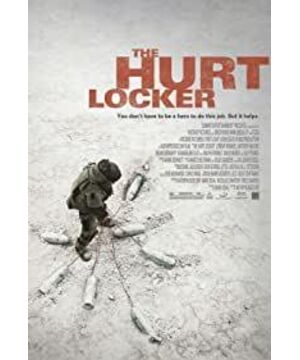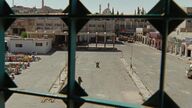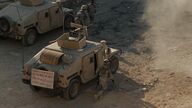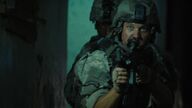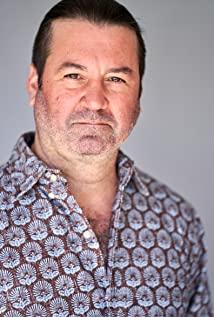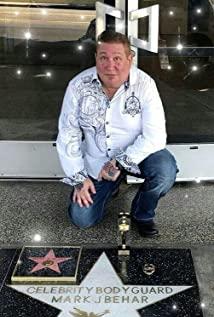-Soldiers dismantled their bombs and were also dismantled their souls
"The Hurt Locker" won the 2010 Oscar for Best Picture, which may be a big surprise to the world , But not for the American Academy of Film Arts. No matter how the Hollywood box office loves all kinds of absurd blockbusters, its highest palace always favors realist works, and sometimes even films with a little social criticism. Just as the Nobel Prize has favored Solzhenitsyn, Kertes and Muller, films such as "American Beauty", "Crash", "Old Nowhere" and "Slumdog Millionaire" all rely on their vision of society. His true portrayal, his high attention to ordinary life, and his ruthless criticism of the ugly phenomena caused by the weakness of human nature finally won the Little Golden Man. The cost of "The Hurt Locker" is only 15 million U.S. dollars. It can be ranked among the best movies by relying on its extraordinary realism.
The background of the film is set after the Second Iraq War. The experts of the bomb removal team of the US Army in Iraq were unfortunately killed in a mission. Sergeant William James was added to the team as a veteran of many battles. William's behavior of going his own way and ignoring instructions caused a headache for his boss Anthony. But his exquisite bomb disposal technology can always surpass the dangers of the enemy's enemy array surrounded by bombs and dangers. Every time a bomb is dismantled, William keeps it in mind, and his body and mind are constantly being tortured by cruel wars during bomb dismantling missions. After a failed bomb disposal mission, William ushered in the day of his return home after his service expired. However, he was overwhelmed by the peaceful life around his wife and children. He could not forget the life on the front line, and eventually returned to Iraq again to continue dismantling the bombs for the army.
In addition to causing physical and mental trauma to humans, war can also be addictive. Just as the movie's opening quoted "New York Times" war correspondent Chris Heggis: War is a drug that can't be stopped. It is not difficult to understand for those who initiated the war. Bush Jr. did not fight the Somali pirates or Colombian drug dealers. He chose Iraq to start, and he was sure of this big oil field. War is a means for these people to consolidate power and grab resources, and it can naturally make them addicted. But why are those sergeants who are on the front line unable to extricate themselves?
This is the cruel and thought-provoking reality of the film. Those who experienced the war not only suffered physical and mental injuries, but their souls also collapsed. The English film title The Hurt Locker originally referred to "a place of extreme pain," and soldiers on the battlefield used it to describe a person who was severely injured in an explosion. For William, if the bomb disposal fails, the protective clothing will become his Hurt Locker. Every time the fuse is removed, the process is like a race against death. After successfully dismantling 873 bombs, William is still there. However, he kept witnessing deaths happening around him, his comrades were killed by snipers, children were killed, civilians were blown to pieces, and any life could be wiped out instantly under the ravages of modern war machines. Offensive, defensive, or action is just a command, and soldiers become a machine that executes commands—machines made of flesh and blood. As long as they survive, they must operate efficiently at the first time. William's return to the battlefield is undoubtedly the black humor of the director's lens. He seems to have no choice. As a very superb bomb disposal "machine", the battlefield needs him, and he also needs the battlefield. His decision is not bad, because we have already witnessed too many tragedies on the screen. In "Tough Times", the role played by Christian Bale finally committed suicide with a bomb. A group of young soldiers returning from the battlefield in "Ira Valley" were talking Suddenly loses his sanity in the movie, he cuts the protagonist's son to eight pieces, and the role played by Toby Maguire in "Brothers" almost caused the murder of the door. At this point, I remembered that in "Escorting Chance", after his forehead was broken by an Iraqi soldier, Chance still killed all the enemies with a machine gun-what a horrible scene, there is no longer any support for a person on the battlefield. It's the will, but the adrenaline-driven frenzy of killing! The enthusiasm that William pursued is the heartbeat of bomb disposal and the pleasure of killing the enemy. After 873 bomb disposal and countless missions, William in ordinary life is dead, leaving only one William who desperately made himself exist on the battlefield. . This is what makes soldiers addicted to war, just like a dying drug addict who has completely lost his personality and will, and the meaning of survival is only to pursue sporadic pleasure.
The transitions of the whole show are closely connected, and what drives the plot is the protagonist's inadvertent choices one after another. These choices often bring us easy mistakes in our lives, which is also the genius of the director's brushwork. Matthew died because his companion failed to act decisively. Like William, Sergeant Matthew played by Guy Pierce was also an experienced veteran. He seemed very professional and composed when performing the task, and it seemed that he could not make a mistake. However, when the opponent showed up with the mobile phone fuze, the gunner who knew that the high-frequency signal would detonate the bomb hesitated for a few seconds. The bomb detonated instantly and blood splashed Matthew's helmet. At that moment, Matthew walked into Hurt Locker and never returned.
William's friendship with the local boy "Beckham" was also mixed with conflicts and misunderstandings. The friendship or feelings between the soldiers on one side of the war and the civilians on the other side have never escaped the envy of others. Whether it is "Mrs. Chrysanthemum" by Akutagawa Ryunosuke or "Miss Saigon" by Weber, those who dare to have ties with foreigners will never get better. . The director deliberately misled the audience with the lens, and also let William bring this prejudice to pave the way for the subsequent conflict. William’s comrades believed that “(in the eyes of white people) Arabs all look the same”, and vice versa, which is actually a true portrayal of our lives. And it was this illusion that finally made William mistakenly believe that "Bei Bei" was killed by the terrorists, and he was ready to avenge himself in anger. As a result, he became an accomplice and almost never returned to the barracks. Later, when we saw "Bei Bei" walking towards William again, William's blank expression and disillusioned eyes on the screen were set off by extremely real inconsistencies, which undoubtedly gave the audience a huge shock.
A large number of imitation documentary shots enhance the sense of the scene of the war in the film, especially represented by the battle between bomb disposal units and mercenaries in the desert when they encountered snipers. In this battle, the director deliberately lengthened the initial misunderstanding between William and the mercenary forces, and continued to extend the confrontation scene with the Iraqi snipers in the later stage, making the audience tired. In the long shot, there is a desert with rolling heat waves. In the close-up, William and Anthony's eyes are bloodshot and exhausted. This is just a small-scale conflict. The appearance of the mercenaries also made people see the other side of the war, that is, there are people like them who are willing to risk their lives for a bounty of millions of dollars. The director did not have the slightest sympathy for them, and even the biggest actor Ralph Fines did not escape the end of his death.
Woolf once said: Great creators need to have androgynous thinking. As a female director, Catherine Bigelow obviously has the quality to switch between androgyny perspectives freely. Bigelow not only sprinkled a lot of maternal brilliance in the scene where William met "Babey", at the same time, in the scene where William insisted on removing the bomb on "Fake Beckham", what the audience saw was full of compassion and nuance. Brushstrokes; and more often, Bigelow’s handling is more resolute than the male director. For example, William and Anthony’s "Boxing Friendship" is reminiscent of David Fincher’s "Fight Club." Although the film has caused criticism from some retired veterans in reality, it is only a procedural issue involving the bomb disposal steps. Regardless of the depiction of the soldier's appearance or the inside, the female director has achieved three points. Once upon a time, Baudelaire said when discussing the beauty of soldiers, “ideal soldiers should show noble simplicity, and the imprint of beauty on their faces should be superb and unfavorable. It is the wonder of calmness and bravery. Mixing is a kind of beauty that is ready to die at any time." Bigelow gave William that beautiful face, it is this innocence and humiliation, but in today's world, there are still many soldiers on the battlefield with William. Same, can you never get out again after being trapped in Hurt Locker forever?
View more about The Hurt Locker reviews


